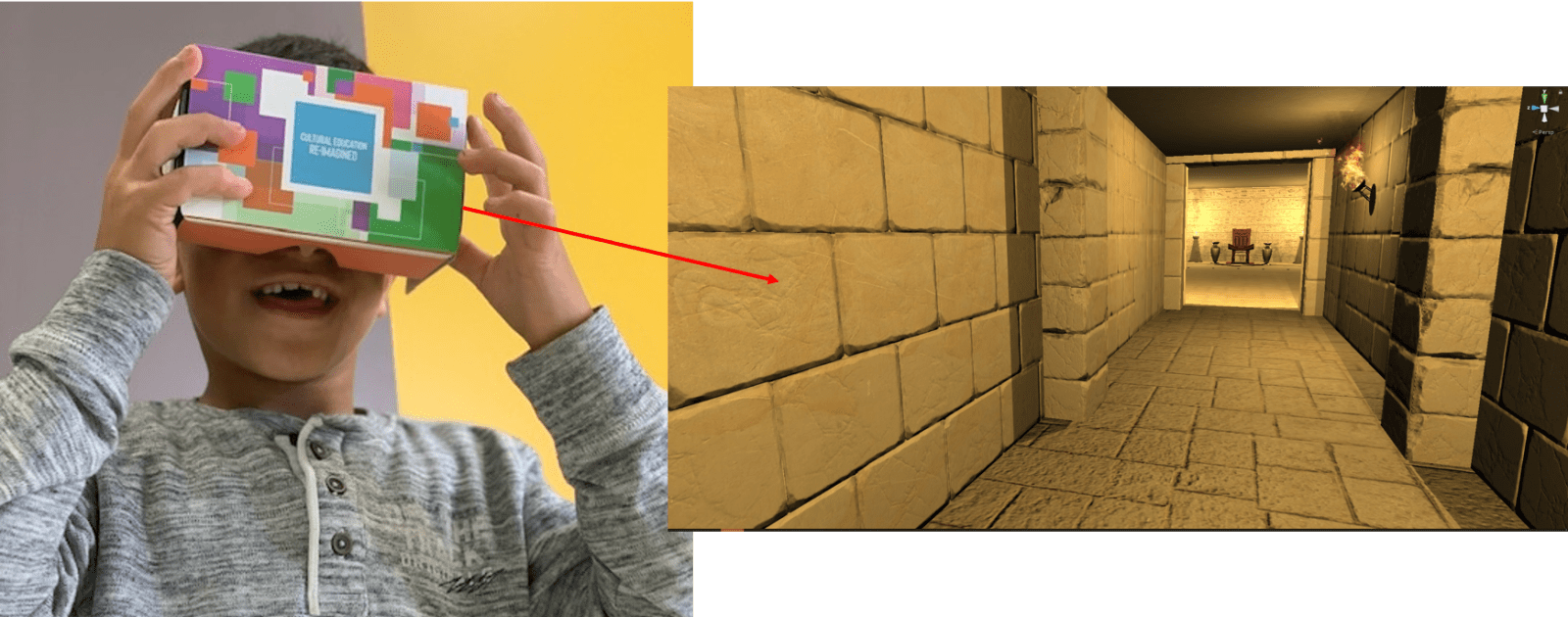Interview with UCL’s Innovation & Enterprise Startups: Kaitlin Fritz from Musemio
This interview is with Kaitlin Fritz who is a co-founder of Musemio, a London-based startup that aims to use technology to bring cultural education to children around the world—think interactive VR quests using just a cardboard headset and mobile phone.

Cofounded with Olga Kravchenko in September 2018, Musemio may soon run out of space for all their awards. After winning the £10,000 UCL Launch Award, they went on to win the NACUE's People’s Choice Award, presented by Lloyd’s Banking Group, and also an award at Queen Mary University of London’s 2019 Engagement and Enterprise Awards for social impact. And most recently Musemio was named UCL’s ‘Most Promising Startup’ at the 2019 UCL Awards for Innovation and Enterprise, out of over 60 ventures in the Hatchery.
We recently spoke with Kaitlin about her experience starting a company with the support of the Innovation & Enterprise Hatchery and what she's learned along the way.
How has UCL Innovation & Enterprise helped Musemio?
After winning the UCL Launch Award, we received £10,000 to launch our business and moved into UCL’s Hatchery, a coworking space based in King’s Cross. Through this award funding we were able to build our technical development, which is a critical component of our business.
We were also given a designated business advisor who provides long-term mentoring support. I check in regularly with our business advisor, who is also my immigration advisor - she knows not only the business but also me and my strengths.
Basically your advisor provides point of need services. For instance if you need to meet a certain investor network or want help with branding or a logo, they’ll put you in touch with the right people.
When you’re part of Innovation & Enterprise, you have access to a mentor network that reaches throughout UCL. If you need a certain mentor in a certain field, your advisor is more than happy to tap into the alumni network, the academic network or even their corporate network. For example Innovation & Enterprise has strong ties with the education institute, which has really helped our startup. So we’ve been really blessed with having a variety of different mentors.
The best part is, these are people you can be 100% transparent and honest with, saying, “I’m stuck.”
How long can you stay in the Hatchery?
Since UCL sponsored my visa, we can stay in the Hatchery for two years. Generally once you meet a critical mass in your team – I think you can have up to 5 team members – you need to go to a “real” office.
Now we’re a team of 5, however some of our team is still remote in Ukraine.
Did you have any internships during school and how have they helped with Musemio?
Altogether I’ve done 5 internships, during school and in the summer. I’ve come to realise that internships are great for building a toolkit and for figuring out what you like and don’t like. I worked in different avenues such as education policy and edtech.
Internships aren’t always about connecting the dots. Sometime there’s the assumption that an internship will lead to the job you want; even when that’s not the case, the experiences you have can still benefit you immensely. For example, I learned so much about the impact of data and data management at a data marketing firm. It seems to have no direct relationship with edtech, until you’re doing research that requires very interesting datasets. I think pooling all these spheres of knowledge is really important.
Do you have any advice for young entrepreneurs?
First, I’d say understand the power of mentors and your network. People in the startup space are so willing to give their time. Aligning with the right mentors or people who are 2-3 steps ahead of you is crucial. Just show up, get involved, get in that space! For instance, if you’re interested in FinTech, go to FinTech events, talk to FinTech entrepreneurs. That’s what I have done in my space. Get in proximity to where it is happening.
In entrepreneurship, first, you’ll see it’s not usually a Mark Zuckerberg story. Startups involve a ton of hard work behind the scenes, but they don’t mention that at startup awards dinners. It’s a different world full of grit and determination.
Second, you have to learn how to hustle—in a good way. You have to think creatively, and put your ideas into action quickly because that’s what the startup ecosystem is like.
Do you have any tips on financing an education?
See if there are any scholarships you can apply for and apply for as many as you can. I worked part-time throughout my graduate degree, and I found that valuable for not only income but also experience.
Get knowledgeable as well about personal finance. Make a budget and don’t overspend or put yourself into a backstep in your career because you have lots of debt.
Finally, would you recommend UCL to up-and-coming entrepreneurs?
I absolutely recommend UCL. We’re a big school which means we have very different outlets to tap into. There are experts in architecture, education, computer science, you name it. But while we’re big, the entrepreneurship community here is very close knit. I know everyone in the Hatchery by first name, and we’re really supportive of each other.
And the quality of people you’re surrounded by on a day-to-day basis is incredible – they’re the most driven, smart people and you have the honour of working next to them. It just amazes me. Someone next to you will raise £4 million – wow – and they’re just wearing t-shirts and acting normal.
Any final words about being an entrepreneur? Well, I think it is best put by an exchange I recently had with my family. They asked me, “What do you do every day?” to which I replied, “Everything!”
